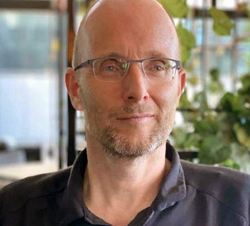Large numbers of Palestinians and Ukrainians were killed in missile strikes days apart. The media’s differing treatment of these comparable events is the clue to what the media’s really there to do
When all we have to rely on in understanding our relationship to the news media is the media’s self-proclaimed assessment of its own role, maybe it is no surprise that most of us assume the West’s “free press” is a force for good: the bedrock of democracy, the touchstone of a superior western civilisation.
The more idealistic among us think of the news media as something akin to a public service. The more cynical of us think of it as a competitive marketplace in information and commentary, one in which ugly agendas are often in evidence but truth ultimately prevails.
Both views are fanciful. The reality is far, far darker – and I speak as someone who worked for many years in the Guardian and Observer newsrooms, widely seen as the West’s most progressive newspapers.
As readers, we don’t, as we imagine, “consume” news. Rather, the news consumes us. Or put another way, the media uses the news to groom us, its audience. Properly understood, the relationship is one of abuser and abused.
Sounds like a paranoid conspiracy theory?
In fact, just such an argument was set out many years ago – in more academic fashion – in Noam Chomsky and Ed Herman’s book Manufacturing Consent.
If you have never heard of the book, there may be a reason. The media don’t want you reading it.
When I worked at the Guardian, there was no figure more reviled in the newsroom by senior editors than Noam Chomsky. As young journalists, we were warned off reading him. How might we react were we to start thinking more deeply about the role of the media, or begin testing the limits of what we were allowed to report and say?
Chomsky and Herman’s Propaganda Model explains in detail how western publics are “brainwashed under freedom” by a media driven by hidden corporate and state interests. Those interests can be concealed only because the media decides what counts as news and frames how we understand events.
Its chief tools are misdirection and omission – and, in extremis, outright deception.
Tribal camps
The Propaganda Model acknowledges that competition is permitted in the news media. But only of a narrow, superficial kind, meant to divide us more usefully into tribal, ideological camps – defined as the left and the right.
Those camps are there to keep us imagining that we enjoy a plurality of ideas, that we are in charge of our response to events, that we elect governments – just as we enjoy a choice between watching the BBC and Fox News.
But our herding into oppositional camps isn’t really about choice. The camps are there to keep us divided, so we can be more easily manipulated and ruled. They are there to obscure from us the deeper reality that the state-corporate media is the public relations arm of an establishment that needs us weak.
To survive, the western power establishment has to engineer two related kinds of popular endorsement:
First, we must consent to the idea that the West has an inalienable right to control the Earth’s resources, even at the cost of committing terrible crimes both against the rest of humanity, such as the current genocide in Gaza, and against other species, as we wreck the natural world in our pursuit of impossible, endless economic growth on a finite planet.
And second, we must consent to the idea that the richest and most powerful elites in the West have an inalienable right to cream off most of the profits from this industrialised rape of our only home.
The media rarely identifies this wasteful, greed system, so normalised has it become. But when given a name, it is called capitalism. It emerges from the shadows only when the media need to confront and ridicule a bogeyman caricature of its main ideological rival, socialism.
Immersed in propaganda
The news media have been fantastically successful at making a system of suicidal resource extraction designed to enrich a tiny number of billionaires seem entirely normal to their audiences. Which is why those same billionaires are as keen to own the news media as they are to own politicians. In fact, gain ownership of the media and you own the political class too. It is the ultimate two-for-one offer.
No politician can afford to take on key state-corporate interests, or the media that veils those interests – as Jeremy Corbyn soon found out in the UK a few years back.
I have spent the past 15 years or more trying to highlight to readers the true nature of our relationship to the media – the groomer and groomed – using the media’s coverage of major news events as a practical peg on which to hang my analysis. Talking about the abusive relationship purely in the abstract is likely to persuade few, given how deeply we are immersed in propaganda.
Understanding how the media carries out its day-to-day switch and baits, its omissions, deceptions and misdirections, is the key to beginning the process of freeing our minds. If you look to the state-corporate media for guidance, you are already in its clutches. You are already a victim – a victim of your own suffocating ignorance, of your own self-sabotage, of your own death wish.
I have expended many hundreds of thousands of words on this topic, as have others such as Media Lens. You can read a few recent examples from me here, here and here. Or you can watch this talk I gave on how I freed myself professionally from the clutches of the corporate media and gained my freedom as an independent journalist:
Different narratives
But rarely do we have examples of propaganda so flagrant from our “free press” that it is hard for readers not to notice them. This week the state-corporate media made my job a little easier. Over the past few days, it has reported on two closely comparable events that it framed in entirely different ways. Ways that all too clearly serve state-corporate interests.
The first such event was an Israeli air strike last Saturday on a school in Gaza, where Palestinian civilians, including children, had been sheltering from months of a rampaging Israeli military that has slaughtered many tens of thousands of Palestinians and destroyed most of the enclave’s homes and infrastructure.
The massive scale of death and destruction in Gaza has forced the World Court to put Israel on trial for genocide – not that you would know from the media coverage. The genocide case against Israel has been largely disappeared down the memory hole.
The second event, on Monday, was a Russian air strike on a hospital in Kyiv. It was part of a wave of attacks on Ukrainian targets that day that killed 36 Ukrainians.
Let us note that on a typical day in Gaza, at least 150 Palestinians are killed by Israel. That has been happening day after day for nine months. And the death toll is almost certainly a massive under-estimate. In decimated Gaza, unlike Ukraine, officials long ago lost the ability to count their dead.
Let us note too that, despite huge numbers of Palestinian women and children being killed each day by Israeli missiles, the news media largely stopped covering the carnage in Gaza months ago. The BBC’s main evening news barely reports it.
The fact alone that the killing of 36 Ukrainian civilians attracted so much attention and concern from the western media, in a war that’s more than two years old, when there is a far larger daily death toll of Palestinian civilians in Gaza, which our governments have been directly aiding, and the slaughter is of more recent origin, is telling in and of itself.
So how did our most trusted and progressive media outlets report these comparable events, in Gaza and Ukraine?
The headlines tell much of the story.
In an all-too-familiar pattern, the BBC shouted from the rooftops: “At least 20 dead after ‘massive’ Russian missile attack on Ukraine cities”. It named Russia as responsible for killing Ukrainians, and did so even when there was still some debate about whether Russian missiles or Ukrainian air-defence missiles had caused the destruction.

Meanwhile, the BBC carefully avoided identifying Israel as the party that killed those in Gaza sheltering from its bombs, even though Israel long ago stopped pretending that feeble Palestinian rockets could cause damage on such a scale. The headline read: “Air strike on Gaza school kills at least 15 people.”

The Guardian’s headlines were even more revealing.
The paper did, at least, identify Israel as responsible for the killing: “Israeli strike on Gaza school kills 16, say Palestinian officials.”
However, the dry, matter-of-fact language about those Palestinian deaths, the suggestion that the deaths were only a claim, and the attribution of that claim to “Palestinian officials” (with the now widely accepted implication that those officials can’t be trusted) was intended to steer the emotional response of readers. They would be left cold and indifferent.
The framing was clear: this was just another, routine day in Gaza. No need to be overly invested in Palestinian suffering.

